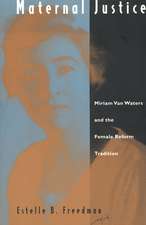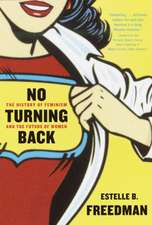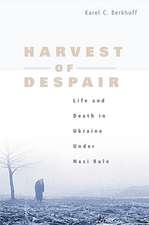Redefining Rape – Sexual Violence in the Era of Suffrage and Segregation
Autor Estelle B. Freedmanen Limba Engleză Paperback – 5 oct 2015
The long-dominant view of rape in America envisioned a brutal attack on a chaste white woman by a male stranger, usually an African American. From the early nineteenth century, advocates for women's rights and racial justice challenged this narrow definition and the sexual and political power of white men that it sustained. Between the 1870s and the 1930s, at the height of racial segregation and lynching, and amid the campaign for woman suffrage, women's rights supporters and African American activists tried to expand understandings of rape in order to gain legal protection from coercive sexual relations, assaults by white men on black women, street harassment, and the sexual abuse of children. By redefining rape, they sought to redraw the very boundaries of citizenship.
Freedman narrates the victories, defeats, and limitations of these and other reform efforts. The modern civil rights and feminist movements, she points out, continue to grapple with both the insights and the dilemmas of these first campaigns to redefine rape in American law and culture.
Preț: 213.94 lei
Nou
Puncte Express: 321
Preț estimativ în valută:
40.94€ • 42.85$ • 34.07£
40.94€ • 42.85$ • 34.07£
Carte tipărită la comandă
Livrare economică 31 martie-14 aprilie
Preluare comenzi: 021 569.72.76
Specificații
ISBN-13: 9780674088115
ISBN-10: 0674088115
Pagini: 416
Dimensiuni: 152 x 227 x 33 mm
Greutate: 0.59 kg
Editura: Harvard University Press
Locul publicării:Cambridge, United States
ISBN-10: 0674088115
Pagini: 416
Dimensiuni: 152 x 227 x 33 mm
Greutate: 0.59 kg
Editura: Harvard University Press
Locul publicării:Cambridge, United States
Notă biografică
Descriere
The uproar over "legitimate rape" during the 2012 U.S. elections confirms that rape remains a word in flux, subject to political power and social privilege. Redefining Rape describes the forces that have shaped the meaning of sexual violence in the U.S., through the experiences of accusers, assailants, and advocates for change.















